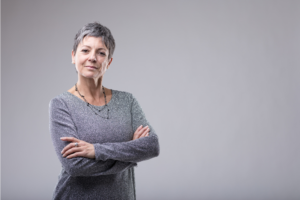
How To Develop Self-Awareness
If you are motivated to make improvements in the quality of your life and relationships,
take the time to learn how to develop self-awareness.
Few qualities are as important to success and happiness in life as self-awareness. Money, beauty, talent, IQ, relationships — all desirable and worthy pursuits. But, if you don’t learn how to develop self-awareness, they will ultimately prove to be meaningless.
As the key component to emotional intelligence, self-awareness, in very simple terms, refers to how clearly you see yourself.
How in-tune are you with your thoughts, feelings, values, passions, behaviors? And are these qualities in alignment with each other?
How do others view you? And is there alignment between how you see you and how others see you?
The benefits of self-awareness — and the consequences of its lack — infiltrate every domain of life, from work to love to solitude.
(Read here to learn the advantages of self-awareness in the workplace.)
So, if you are motivated to make improvements in the quality of your life and relationships, take the time to learn how to develop self-awareness.
Or, if you are already a devotee of self-awareness, continue the work of improving the self-awareness you already have.
It takes only a spark to ignite a life-changing journey into heightened awareness of yourself and the world around you.
Perhaps that spark is a fleeting moment of intense joy while you’re out in nature.
Perhaps you are surprised by the depth of your emotions when someone does something unexpectedly kind for you.
Or perhaps you are surprised by the depth of your emotions — and your resulting choice of behavior — when something doesn’t go your way.
Whatever moment or experience triggers your self-curiosity, use that as your starting point for learning how to develop self-awareness.
Here are some tips to get you started:
Decide to become aware.
Every worthwhile journey begins with a choice. Even an impromptu decision to do something different has its origin in a momentary choice.
If you’re reading this article, surely there is a reason.Pause in the moment.
Regardless of the emotion – joy, surprise, gratitude, anger, sadness – pause when it arises. Allow it to “sit on your palate” for a while. Study it in the context of the moment and your surroundings.
What do your tears of gratitude tell you about what you truly value? What does your joy tell you about what inspires you? What does your anger tell you about your deep-seeded fears?
Learning how to develop self-awareness is largely a process of willingness to be present to the moment. It is the greatest education you will ever receive.Risk seeing yourself objectively.
Viewing yourself with objectivity may sound impossible. You are, after all, you.
However, knowing your strengths and weaknesses is at the heart of self-awareness. And the only way to know them is to examine them with objectivity.
Ambivalence toward an objective self-view may be rooted in a belief that you will become self-critical. But self-awareness isn’t about evaluation or judgment. It’s about seeing “what is” so you can choose “what can be.”
Here are some examples of objective observations:
I cry when I’m afraid.
I make excuses for not wanting to talk to certain employees.
I worry about xyz before I have information to justify the worry.
I am more productive in the morning/nighttime.
I make a lot of mistakes when I feel rushed.
I get excited about doing nice things for others when I have first taken good care of myself.Re-read what you write and let it “sit” before sending.
We all know what it’s like to open an email that feels scathing, heartless, and intentionally hurtful.
Social media is another prime example of people speaking without thinking (or pausing), then hitting “send” without a second thought.
Impulse control is an emotional intelligence competency that reflects an ability to think before acting. It is a mitigating factor in situations involving anger, aggression, and hostility. And it is essential to effective problem solving.
Whether you are writing a letter, a text message, or social media post, pause first.
If your expressed thoughts are in response to or could create conflict – and especially if they could do harm – pause.
One of the most important components of learning how to develop self-awareness is learning when and how to put things on the back burner.
Put an email into draft mode. Revisit it several days later when you aren’t steeped in the emotion of the moment. Read your words objectively, as if you are on the receiving end.
Then edit and pause again.
You would be amazed at how much you learn about yourself simply by being your own audience.Journal.
Write, write, write.
Self-awareness isn’t about judgment. It’s about collecting information about yourself, processing that information, accepting that information, and making informed choices.
Whether you “dump” to your computer or an old-school journal, writing exposes what so often struggles to get out. And, once it’s out, there can be clarity.
Need help knowing what to write about? Try these inspiring journal prompts for self-awareness and growth.Ask others for feedback.
Asking others to share how they see you takes courage. And sharing how you see someone else takes courage.
But then, self-awareness is a journey of courage.
We don’t live in this world in isolation. We influence and are influenced by others.
While it’s easy to welcome adulation from others, sometimes it’s the constructive comments that hold the seeds of greatest growth.
Great leaders understand the benefits of asking for feedback, and they are willingly vulnerable to it.
The beauty, if not the irony, of self-awareness is that, once you have it, you naturally want to improve it. It becomes a positive feedback loop in and of itself. More awareness leads to more awareness.
And more awareness leads to a richer, happier, more deeply connected life.
I’m Dr. Karen Finn and I’m a life coach. Schedule a 30-minute private consultation if you’d like support in becoming a more self-aware person so you can more easily navigate your life post-divorce.
You can learn more about becoming and benefitting from being a self-aware person in How To Be More Self-Aware.
Related Posts:
How Divorce Can Actually Help You Gain Self-Awareness
If you don’t gain self-awareness from your divorce, you’ll carry the limitations of your failed marriage into all future relationships.
Read More5 Reasons The Importance Of Self-Awareness Can’t Be Over-Emphasized When You’re Struggling With Infidelity
The importance of self-awareness for the betrayed may not be as obvious as it is for the cheater. But it’s critical for a marriage’s survival.
Read More7 Advantages Of Being Self-Aware In The Workplace
A primary predictor of success is being self-aware in the workplace & everywhere else. Discover the main advantages of self-awareness at work.
Read More


